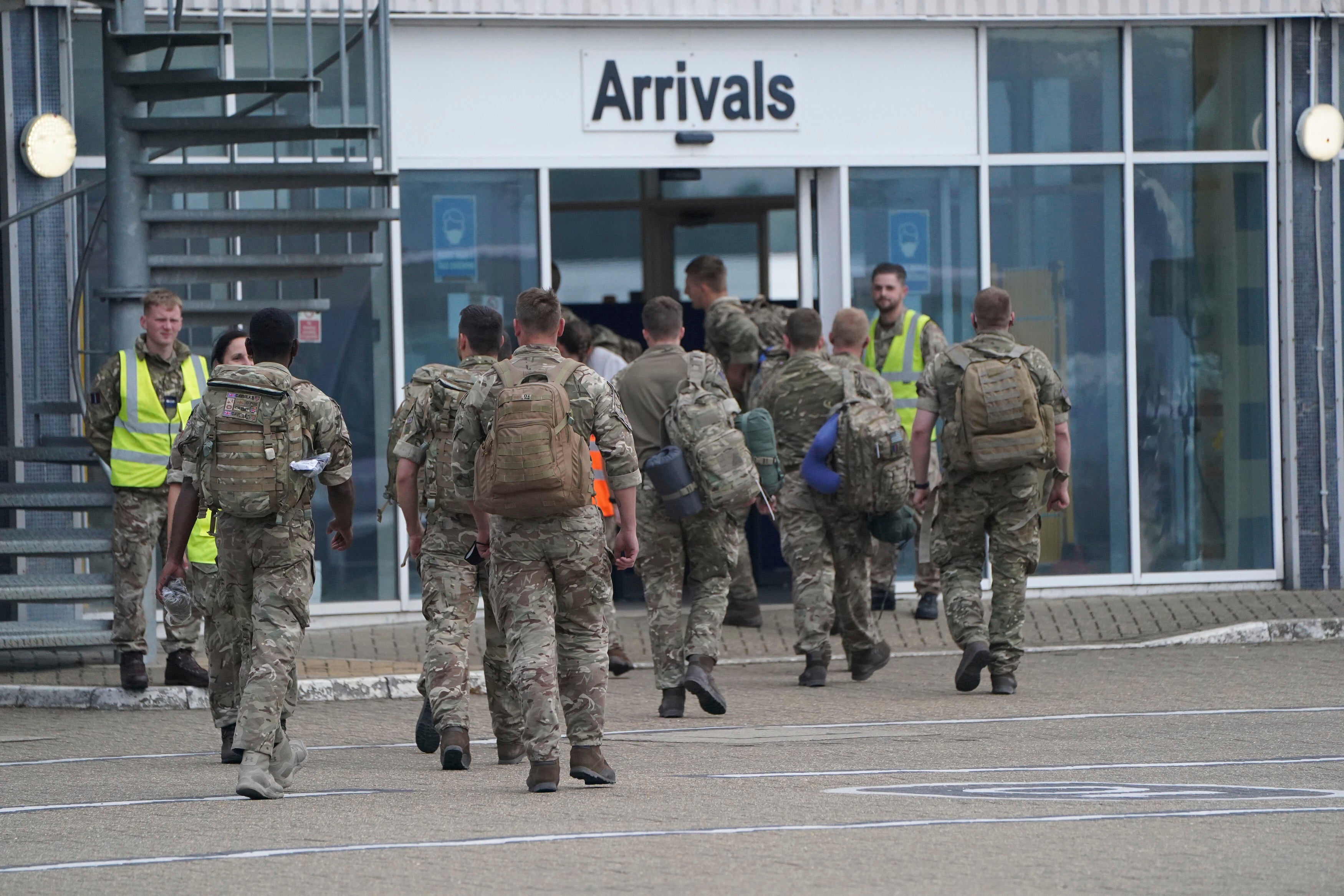As troops return, UK under pressure over Afghans left behind
British Prime Minister Boris Johnson has praised the “colossal” effort to airlift civilians from Kabul as U.K. troops and diplomats flew home after the two-week mission

Your support helps us to tell the story
From reproductive rights to climate change to Big Tech, The Independent is on the ground when the story is developing. Whether it's investigating the financials of Elon Musk's pro-Trump PAC or producing our latest documentary, 'The A Word', which shines a light on the American women fighting for reproductive rights, we know how important it is to parse out the facts from the messaging.
At such a critical moment in US history, we need reporters on the ground. Your donation allows us to keep sending journalists to speak to both sides of the story.
The Independent is trusted by Americans across the entire political spectrum. And unlike many other quality news outlets, we choose not to lock Americans out of our reporting and analysis with paywalls. We believe quality journalism should be available to everyone, paid for by those who can afford it.
Your support makes all the difference.British Prime Minister Boris Johnson on Sunday praised the “colossal” effort to airlift civilians from Kabul as U.K. troops and diplomats flew home after the two-week mission, ending 20 years of British military involvement in Afghanistan
In a video message, Johnson praised the “colossal exertions” of British troops engaged in “a mission unlike anything we’ve seen in our lifetimes.”
But his government is facing criticism for leaving behind hundreds, or even thousands, of vulnerable Afghans whom the U.K. had promised to protect.
The U.K. ambassador to Afghanistan, Laurie Bristow, was among those who arrived at RAF Brize Norton northwest of London on Sunday, hours after the government announced that all British personnel had left Kabul. More flights bringing back approximately 1,000 U.K. troops from Kabul airport were due throughout the day.
Britain says it has evacuated more than 15,000 U.K. citizens and vulnerable Afghans in the past two weeks, but that as many as 1,100 Afghans who were entitled to come to the U.K. have been left behind.
Vice Admiral Ben Key, who was in charge of the British operation, said: “We tried our best.”
But the government is under pressure to explain why it didn’t act more quickly once it became clear the U.S.-led military presence in Afghanistan was ending.
A former head of the British Army, retired Gen. Richard Dannatt, said the government was “asleep on watch” and had been warned that former interpreters and others who worked with British forces were at risk.
“This issue has been on politicians’ desks for two to three years and, certainly, it’s been there during the course of this year,” he told Times Radio.
“We should have done better, we could have done better. It absolutely behooves us to find out why the government didn’t spark up faster,” he added.
Johnson acknowledged that Britain “would not have wished to leave in this way,” but said it was tied to the departure timetable set by the United States, which is ending its 20-year Afghan involvement by Aug. 31.
“Though we now leave with the United States, we will remain represented in the region,” Johnson said. “Together with our allies in America and Europe and around the world, we will engage with the Taliban not on the basis of what they say but what they do.
“If the new regime in Kabul wants diplomatic recognition, or to unlock the billions that are currently frozen, they will have to ensure safe passage for those who wish to leave the country, to respect the rights of women and girls, to prevent Afghanistan from, again, becoming an incubator for global terror, because that would be disastrous for Afghanistan.”
___
Follow AP’s coverage of Afghanistan at https://apnews.com/hub/afghanistan